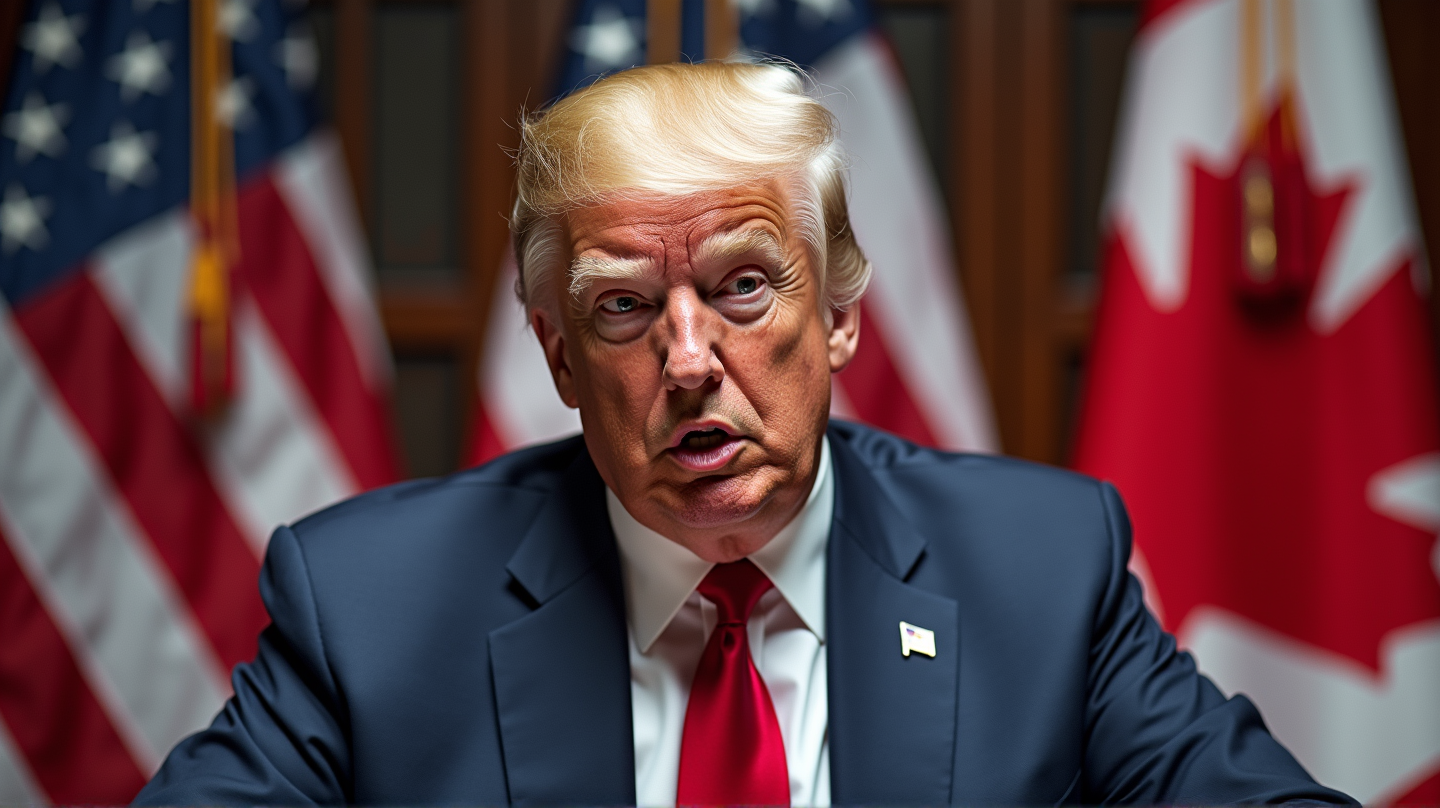Tariff Threats: Canada and U.S. Trade Tensions on the Rise
A new threat by the U.S. to impose 35% tariffs on Canadian goods shakes the already fragile trade relations. Could this lead to a larger economic conflict?

A ripple of tension cascades through the delicate fabric of Canada-U.S. relations as the United States, under President Donald Trump, announces a looming tariff increase. The proposed 35% tariff on Canadian imports is set to ignite fresh waves of economic anxiety and political strain.
The Trump Administration’s Stance
In a bold and controversial move, the Trump administration has threatened to impose a significant 35% tariff on Canadian goods effective from August 1st. According to Global News, this declaration has sparked a whirlwind of reactions both north and south of the border. The reasoning behind this action, as stated by President Trump, is to protect and prioritize American jobs and industries.
Impact on Trade Negotiations
Trade negotiations between these two neighboring giants have always been a dance of diplomacy, yet this recent threat might force Canada to recalibrate its strategy. As Eric Miller, a renowned Canada-U.S. trade expert, explains, these tariffs might disrupt ongoing negotiations and could potentially stymie future agreements. Businesses reliant on cross-border trade are bracing for impacts that could trickle down the economy, hitting sectors from agriculture to automotive.
Canadian Response and Countermeasures
Amidst the strife, Canadian officials are reportedly considering various countermeasures that could shift the balance in this transnational tug-of-war. There are talks of retaliatory tariffs that might affect American exports into Canada, directly influencing consumer prices and supply chains. The Canadian public and businesses are watching closely as their government deliberates on the path forward.
Economic and Political Repercussions
Beyond the immediate economic implications, this standoff might also influence political landscapes in both countries. With pressure mounting, the resiliency of Canadian-U.S. diplomatic ties will be tested. Economists warn that ongoing tensions could lead to a broader trade war, which few hope to witness.
Public Opinion and Industry Reactions
Public opinion varies widely, with some supporting measures to protect national interests and others advocating for resolution through diplomatic channels. Industries on both sides of the border are lobbying for a swift and amicable solution, aware of the potential disruptions to both economies.
In the shadow of this looming economic duel, the world watches as Canada and the U.S. navigate these turbulent waters, striving to maintain a balance that has historically benefited both nations. How these developments unfold will no doubt set a precedent for future trade relations and the global approach to economic diplomacy.





